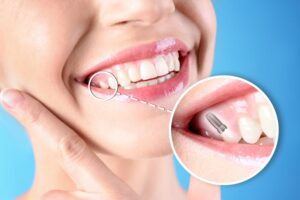
Understandably, the idea of undergoing dental implant surgery can be intimidating. You might be afraid that something will go wrong! However, there is no need to worry. Dental implants are consistently successful. In fact, they thrive in more than 95% of cases. What makes them such a predictably reliable way to rebuild lost teeth? This blog post shares a few reasons.
Modeled after Real Teeth
Dental implants imitate the structure of natural teeth. The implants themselves are inserted into the jawbone, where they bond with the surrounding tissue via a biological process known as osseointegration. They are then able to act as prosthetic tooth roots, which can support crowns, bridges, and dentures. Because they mimic the structure of real teeth, they provide many of the same benefits as natural dentition, including stability and strength.
Thorough Preparation
Your dental team wants your treatment to go well, so they will do a lot of work even before your implant surgery. They should:
- Take detailed images of your mouth and jawbone.
- Perform a thorough visual examination of your gums and teeth.
- Learn about your medical history and relevant lifestyle habits.
Based on the information they gather, they can design a treatment plan that is tailored to your unique situation. For example, they might determine that you need one or more preliminary services, such as gum disease therapy or a bone graft, before you get implants. Completing these treatments could be vital for your implants’ long-term success.
Careful Placement
Placing dental implants in the jawbone can be a delicate process. They should be inserted at the right location, angle, and depth. The dentist who performs your procedure will pay careful attention to all such details so there is minimal risk of incorrect placement and a high chance of a desirable outcome.
Top-Quality Materials
Most modern dental implants are composed of surgical-grade titanium alloy, which has a longstanding reputation as being compatible with the human body. Allergies to it are extremely rare, and it tends to bond well with bone tissue. The bridges, crowns, and dentures that get placed on top of dental implants are also made of high-quality materials, such as ceramic and porcelain.
Diligent Post-Op Care
Once your implants have been successfully placed, you become largely responsible for their long-term success. You should be sure to carefully follow all post-op instructions from your care team. For example, you may need to eat soft foods for a while, modify your oral hygiene routine, and get plenty of rest. In the long term, good habits like thorough brushing and flossing, not using tobacco, attending regular dental visits, and other healthful practices will minimize the risk of dental implant failure.
Dental implants boast a high success rate! Talk to your dentist to learn what it would take to rebuild your lost dentition.
Meet the Practice
At Brookside Dental Care, our team is proud to provide start-to-finish dental implant services in a welcoming, comfortable environment. We take every reasonable precaution to promote positive outcomes for each patient. If you would like to learn more about the tooth replacement process, we would be happy to answer your questions during a complimentary no-obligation consultation. Get in touch with our Prestonsburg, KY, office at 606-874-9311.
